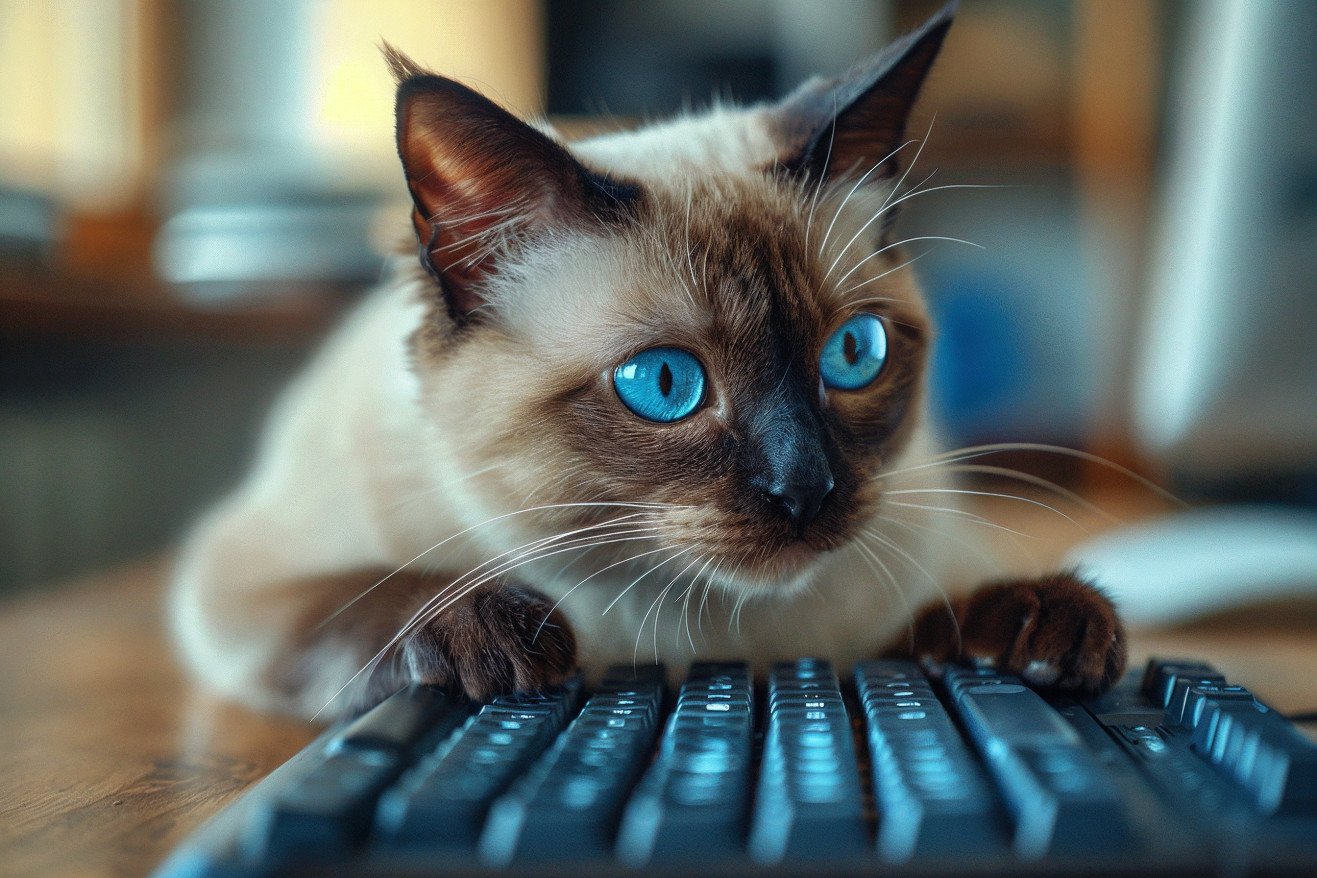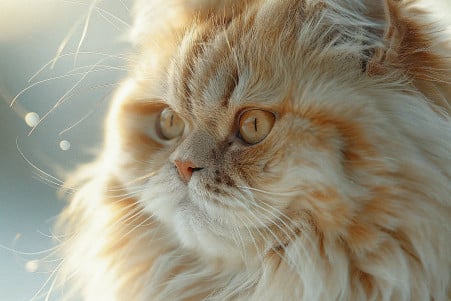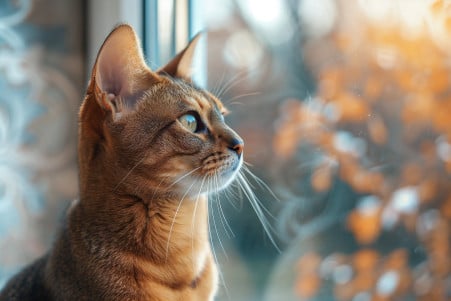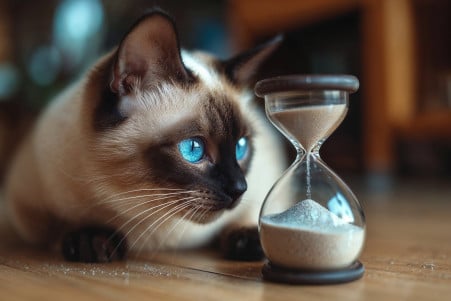The Intricate Details of a Cat's Memory: Understanding Feline Recall
20 May 2024 • Updated 20 May 2024

Despite their reputation for being distant and forgetful, the studies of feline memory have uncovered some pretty interesting details. A cat's long-term memory can last up to 16 hours for events that are meaningful to the cat, but their short-term memory is only about 1 minute. Their sense of smell is also a big part of how they form and remember things over time.
To learn more about the intricate details of a cat's memory, we'll look at studies in animal behavior, neuroscience, and evolutionary biology. We'll also look at how memory impacts a cat's instincts for hunting, spatial memory, and social behavior to get a more complete picture of the cat's cognitive abilities that have helped them survive as both domesticated pets and hunters.
How long is a cat's memory?
How a Cat's Memory Works: Short-Term and Long-Term Memory
Cats have both short-term and long-term memory just like humans and dogs. Short-term, or "working" memory, helps cats with important everyday activities such as problem-solving and remembering where food is located or where prey may be hiding. For example, in one experiment, cats were able to remember which bowl had food in it after a 15-minute absence, showing their short-term memory is particularly strong when it comes to food.
Long-term memory helps cats remember people, places, and routines for years. The hippocampus in a cat's brain is particularly important for helping cats form and retrieve long-term memories. A cat's memories are also influenced by environmental factors such as enrichment, emotional experiences, and repetition. For example, a cat is more likely to remember a positive experience if it is associated with a positive emotion like love, while a cat is more likely to remember a negative experience if it is associated with a negative emotion like fear.
Cats' long-term memory is especially strong, and studies have shown that cats may remember important events for their entire 15- to 20-year lifespan. This long-term memory, combined with their short-term memory for important tasks, helps cats succeed as both domesticated pets and hunters in the wild.
Cat Memory in Action: How Cats Use Memory in Everyday Life
Cats' memory skills are on display in the way they live their lives and interact with their surroundings. Their spatial memory helps them move around their world and find important things like food and water. Catster notes that cats can remember where their food bowl is or where a toy was hidden for a short period of time, which they use to figure out how to get what they want.
In addition to spatial memory, cats also have emotional memory and can even remember and respond to human emotions. BetterVet explains that cats' long-term memory is limited to a few people or places, but they can remember those associations, whether good or bad, for many years. Cats' ability to remember is also at play in positive reinforcement and associative learning, which helps them remember commands, schedules, and form close relationships with their human family members.
Cats also have object permanence, according to Dr. Dawn the Pet Vet. This means that they know that objects continue to exist even when they can't see them, a skill that's similar to human toddlers. This understanding of their surroundings and the things in them is another example of how cats' memory and intelligence are more complex than many people realize.
Comparative Memory: How Cats Stack Up to Other Species
Cats have memory skills that, in some ways, are even more advanced than those of humans. As research from Bond Vet notes, the feline cerebral cortex contains about 300 million neurons, which is similar to the brain of a 2-year-old child. This enables cats to have advanced spatial and procedural memory, which is similar to that of a human toddler.
Cats also have better short-term memory when it comes to remembering information about food and hunting than dogs. One study showed that cats remembered the location of food bowls for up to 15 minutes, which demonstrates their strong working memory when it comes to information that’s important for their survival. Cats also have a good grasp of object permanence, which is the understanding that objects continue to exist even when they can’t be seen.
Even though the feline cerebral cortex contains far fewer neurons than the human brain, cats’ memory and intelligence are still impressive. As Popular Science notes, cats have a great memory for information that’s important for their survival, including hunting skills and the location of food sources. This kind of memory has helped cats be successful both as domesticated pets and as hunters in the wild.
Past Experiences: How Cats Remember Important Moments
Cats remember important moments from their past, both good and bad. Cats have an incredible ability to remember their mother's scent and the scent of their littermates from when they were kittens, as explained in research by CatsLife. These early memories are important for their development and socialization.
Positive experiences, such as love, attention, and rewards, create positive memories that cats can remember throughout their lives, deepening the bond between cats and their human companions. According to PawPaw Pet Insurance, cats are more likely to remember people who have shown them love and kindness and provided a safe and secure environment. On the other hand, negative experiences, such as abuse or neglect, can create traumatic memories that cats may remember and that may affect their behavior.
Unfortunately, cats may also remember the loss of a pet or a human and experience grief or anxiety as a result. As explained by Cats.com, the emotions associated with being abandoned can be so strong that cats may remember them for years. The more often a cat experiences an event and the more emotional it is, the more likely the cat is to remember it.
Knowing that cats remember important moments from their past can help cat owners and other people who care for cats better meet the needs of their feline friends and help them overcome any behavioral issues that may stem from past negative experiences.
How to Support a Cat's Memory: Tips for Pet Parents and Caregivers
Knowing the limitations and strengths of a cat's memory can help pet parents better understand and manage unwanted behaviors. Modkat suggests that because cats can hold grudges and mourn, it's important to understand the emotional reasons behind their behaviors. Meanwhile, positive reinforcement and the creation of positive memories can help strengthen the bond between cats and their people, according to PawPaw Pet Insurance.
In addition, environmental enrichment and mental stimulation can help support a cat's memory. Petful explains that cats can experience dementia, so it's important to keep their minds active. Meanwhile, recognizing the signs of cognitive dysfunction or PTSD, such as changes in behavior or litter box problems, can help ensure that cats get the help they need.
In addition, a diet that's high in antioxidants and omega-3 fatty acids may help slow the progression of age-related memory loss, according to Modkat. By knowing the limitations and strengths of a cat's memory and taking steps to support it, pet parents can help ensure a stronger bond and a better quality of life for their cats.
Conclusion: Understanding Feline Memory
Cats have short-term and long-term memory that's as good as or better than many other animals. Their memory is important for their survival as both domesticated pets and hunters. Understanding a cat's memory can help people who live with cats build a better relationship with their feline friends.
While more research is needed to fully understand the complexities of feline memory and cognition, recognizing a cat's impressive memory can lead to a deeper understanding and appreciation of these fascinating animals.


